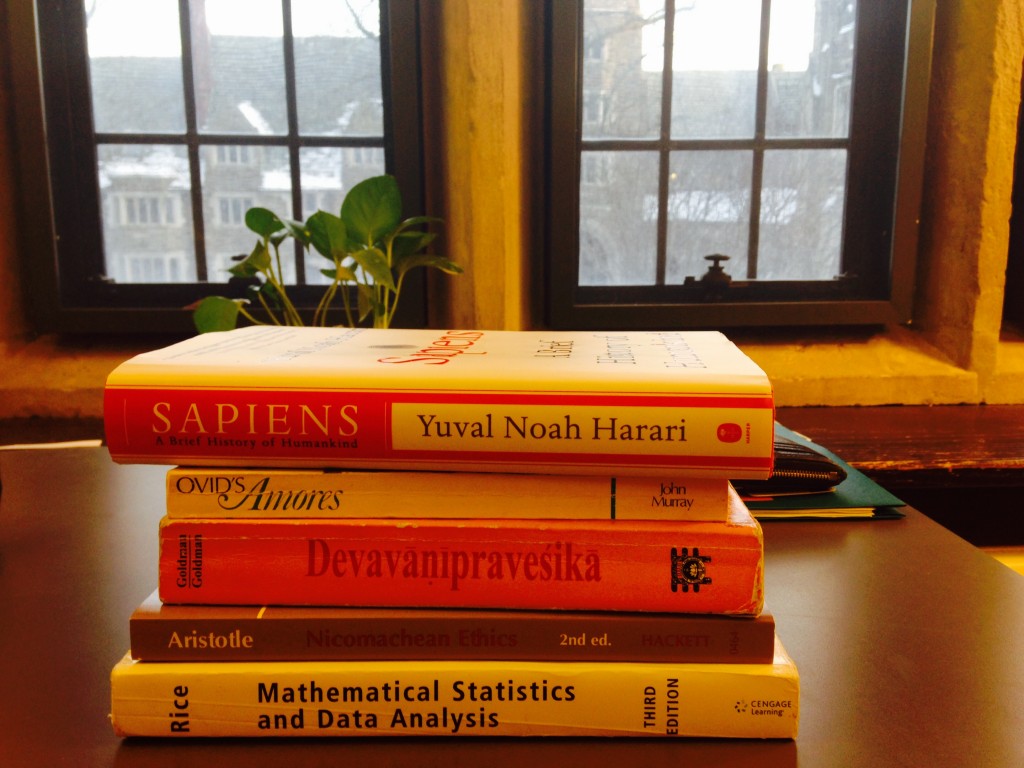This week, I was having a standard lunchtime conversation with friends about our classes. The conversation veered to next fall’s course offerings, which will include the three legendary classes Practical Ethics, Constitutional Interpretation, and Politics of Modern Islam. Having recently read reviews of Constitutional Interpretation, I joked that it might be unwise to take all three simultaneously.
“This might be a very B.S.E thing to say,” one friend said, “but I don’t understand how humanities classes can be hard.”

As a philosophy major, I felt shocked, and then defensive. How could an entire set of disciplines be “easy,” unless a student is uninformed or pursuing it incorrectly? I felt like retorting that most of the engineers in my humanities classes did not read what was assigned, wrote papers the night before they were due, and failed to be productive precept participants. I bit my tongue. My thoughts were equally unproductive generalizations.
Later, I realized that I have my own biases to tackle. I have sometimes thought of engineering students as a little soulless and unadventurous, constrained by technical requirements and rigid mindsets. I’ve rolled my eyes at students who PDF the allegedly easiest classes to fulfill distribution requirements. In return, I have heard the subjects I love dismissed as unchallenging and unworthy of respect. I used to feel uncomfortable telling my B.S.E friends that I was a philosophy major. I only felt that I recovered some legitimacy after hastily mentioning that I also work in a neuroscience lab and use Matlab regularly.
Academic stereotypes permeate this campus: Psychology and sociology are for athletes. English majors can’t do math. Math is for introverted men. Engineers lack creativity and vision. Classics majors are wealthy kids who can afford impracticality. But these stereotypes divide our intellectual environment and destroy the awareness of interdisciplinary potential.
When intellectual pursuit turns into an ego issue, the possibility of mutual respect fades. Many students on campus complain about their work to each other– it’s therapeutic sometimes, and gives people common ground. These conversations sometimes take a dangerous turn and start feeling like competitions about whose academic work is more legitimate and time-consuming. Some scoff at problem sets as repetitive busy-work, while others employ them as satisfying analytical puzzles. Some dismiss reading as a casual activity, while others are careful to comprehend and critically analyze their texts.
Classes often exacerbate the issue by assigning students excessive amounts of work. I take pride in Princeton’s demanding academic standards. However, I feel that many students are unable even to complete their homework–and their writing, participation, and critical thinking skills suffer. Too often, I spend my weeks racing to finish problem sets or reading, rarely getting to the stage where I can analyze them in depth. Instead of feeling confident in explaining my material, I feel like I have barely survived the week. The amount of work assigned to students seems counterproductive when few are able to ably comprehend it and even fewer to go beyond their required readings–which seems like the mark of true academic excellence.
Though it is almost impossible to take full advantage of my classes by talking to professors in office hours, reading related articles, and fully absorbing the material taught, these rare moments make my academic experiences memorable. Some friends have explained that they feel that exploring other disciplines is a luxury when they spend all their time doing work for their departmental classes. As a result, few are ever exposed to the richest course offerings of other disciplines, and stereotypes persevere.
Someday, I hope our campus community moves away from the discussion about whose majors and classes are “harder.” Instead, I hope we focus on how we can use each of our classes to push our boundaries. We can form a community that encourages respect and awareness of achievements across disciplines, and produce richer and more informed academic work in our own fields.
– Vidushi Sharma, Humanities Correspondent

